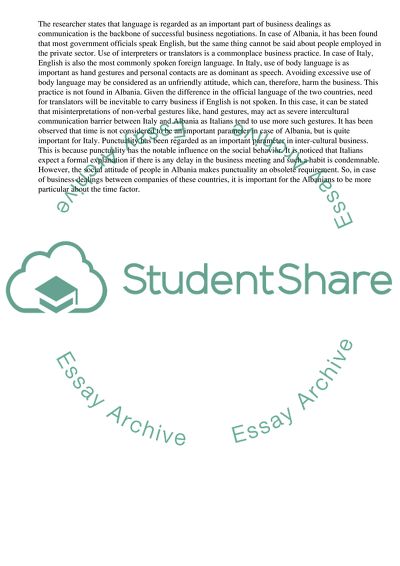Cite this document
(“Business Culture of Albania and Italy Essay Example | Topics and Well Written Essays - 1500 words”, n.d.)
Business Culture of Albania and Italy Essay Example | Topics and Well Written Essays - 1500 words. Retrieved from https://studentshare.org/business/1647836-international-business-culture
Business Culture of Albania and Italy Essay Example | Topics and Well Written Essays - 1500 words. Retrieved from https://studentshare.org/business/1647836-international-business-culture
(Business Culture of Albania and Italy Essay Example | Topics and Well Written Essays - 1500 Words)
Business Culture of Albania and Italy Essay Example | Topics and Well Written Essays - 1500 Words. https://studentshare.org/business/1647836-international-business-culture.
Business Culture of Albania and Italy Essay Example | Topics and Well Written Essays - 1500 Words. https://studentshare.org/business/1647836-international-business-culture.
“Business Culture of Albania and Italy Essay Example | Topics and Well Written Essays - 1500 Words”, n.d. https://studentshare.org/business/1647836-international-business-culture.


